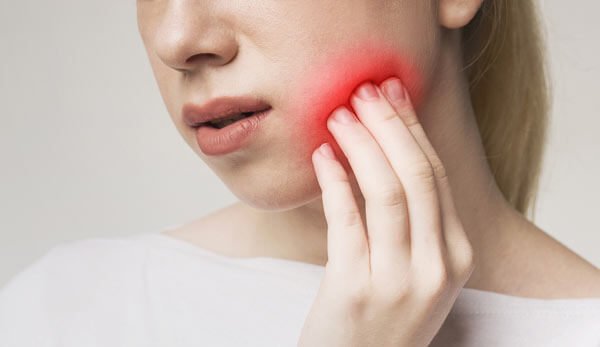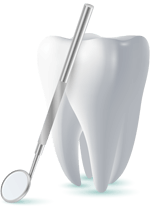Preventive Dentistry
We pride ourselves on ensuring that everyone keeps his or her teeth for life. We have a hygiene department in our dental practice that facilitates this for our patients.


OUR SERVICES
Preventive Dentistry
The oral health therapist/ dental hygienist specializes in oral hygiene practices- which include scaling and cleaning teeth, whitening teeth, and preventive and comprehensive periodontal (gum) disease treatment.
Both the dentist and oral health therapist/ dental hygienist will be able to create, manage, and maintain your unique smile. Here is some general information about the importance of gums.
Gum Health
Are you getting:
- Persistent swollen and tender red gums that sometime bleeds when you brush or floss?
- Sensitive teeth every time you have an ice-cream or a cold drink?
- Complaints from your partner about your bad breath.
- A funny taste in your mouth.
- A moving tooth that is so loose you feel like you can pull it out with your own fingers?
All of these are indications that you may be suffering from gum disease.

Call Hepburn Heights Clinic
(08) 9448 0804
Gum Disease
Gum disease (also known as periodontal disease) affects most people at some time during their life. It may affect one or more teeth at any time. Because it is usually not painful, most people do not notice it until an oral health professional diagnoses the issue. Sometimes that diagnosis may be too late and the tooth/ teeth may need to be removed.
Periodontal disease is the inflammation and infection of gums caused by bacteria in your mouth. There is a constant build-up of naturally occurring bacteria in your mouth through bio-films, a technical name for how bacteria interact and stick together. Everyday eating, drinking and cleaning have an effect on how it sticks to your teeth. Over a period of time, if the plaque is not removed effectively from daily tooth brushing and flossing, this plaque hardens to form calculus, also commonly known as tartar. Poor oral hygiene results in plaque and calculus forming and subsequently irritates the gums and causes inflammation and infection. Inflammation is a natural body response to a foreign body.
Think of it like a splinter: the calculus/ tartar is a splinter on your gums; your body reacts to it (by having a swollen and redness appearance) the gums also move away from the splinter, which may be seen as receding gums.
Periodontal Disease
Early stages of gum diseases
The most common form of early gum disease is gingivitis. Simply practicing good oral hygiene can reverse the damage that is caused by gingivitis. The characteristics of gingivitis include red and swollen gum that bleeds easily. The condition is treatable by thorough daily brushing and flossing with the correct techniques.
Advanced stages of gum disease
When gingivitis is left untreated, it can often lead to periodontitis where bacterial infection starts. The result of these is damage to the supporting structures of the tooth and it is irreversible. The supporting structures are the gums, and the supporting bone. The weakening of the gum margin creates susceptible areas for more bacteria and more plaque and calculus to enter and form. This creates what we call a periodontal pocket where the fibres connecting the tooth with its surrounding bone are destroyed. This may result in the tooth becoming loose if it reaches an advance stage. If left untreated, loss of the tooth can occur with possible spread of infection to other teeth.
How and Why do we treat Periodontitis?
So that you can keep your teeth for life and have a better and healthier smile, we need to treat periodontal disease early. Unfortunately, the damage done by periodontitis cannot be reversed, like gingivitis; however, the disease process can be stopped. Receding gums and sensitivity of teeth are common results of periodontitis even after treatment. The removal of bacterial deposits by a specialist, dentist or a dental hygienist may control the disease progress but unfortunately it does not promote growth of bone or reattachment of gums. After root planing treatment (a deeper scaling to get to the badly affected areas), gums will firm up to support the tooth, however, if good oral hygiene is not maintained, gum disease will return. Hence, continuing care with regular visits to the dentist or dental hygienist is very important in order to prevent, monitor and control periodontal diseases. Sometimes, a specialist is required to manage the periodontal disease. It is really dependant on when the disease is diagnosed and how it needs to be managed.
Still not sure about gum diseases?
If you have any questions about gum diseases, why not give us a call and book in to see a hygienist or our dentist? Did you know that periodontal disease has been linked with heart disease and diabetes? Tobacco users are at a higher risk of periodontal diseases. Pregnancy, puberty, stress or medication can be factors that contribute to the progression of gum diseases. Stop guessing. Organise an appointment with one of our fully qualified oral health professionals to assess and manage your mouth for you.
Free Tips
To maintain healthy gums and teeth, you need to practice correct oral hygiene methods at home and also visit your dentist regularly for professional maintenance.
There are a number of tooth brushes available on the market: the manual tooth brush with a flexible head; angle bristles for braces; softest bristles for dentures; battery operated tooth brushes to the almighty electric tooth brush.
The target areas are primarily the teeth and the other (often forgotten area) the gum area. Start and move systematically from one part of the mouth to another aiming the bristles of the brush at a 45 -degree angle toward the gum. What we recommend is: cheek sides of teeth -top right then top left, move to bottom left to bottom right; then onto the insides of the teeth – top right, top left, bottom left and bottom right finishing off with the biting parts of teeth. This should take about 2-3 minutes. With an electric tooth brush, the brush does everything for you, all you need to do is hold it over EACH tooth for 2 seconds (do not forget the outside AND insides of the teeth, finally with the biting surfaces).
Flossing is the best thing to clean in between the teeth. This should be shown to you. There are other products that can clean in between the teeth and is dependent on how you are currently managing your teeth. Interdental brushes or piksters are great tools to get in between teeth. This should be shown to you and will help compliment your current oral hygiene practices.
We cannot forget that diet plays an important role as well, along with our lifestyle and profession. Sugar is a main contributor to the decay process. So, small amounts are better than large quantities and one episode is better than several, during the day.
Those that lead an active sporting lifestyle will generally be a little dehydrated. If this is you, you should ensure that enough liquids are taken to replace lost fluids. Sports drinks are great for doing this but must be taken in a controlled manner. This is due to the acidic nature of these drinks. Frequent attacks from the acidic nature of these drinks will cause erosion of the teeth and sensitivity of the teeth will ensue, therefore water is better.
Also, the medication that some people are taking can have an adverse effect one’s dental health as this may change the normal balance of bacteria in the mouth. It is important that a complete and through medical history is taken and that a list of all medication (herbal to prescription) is given to enable us to determine if there are any untoward effects to the oral condition.
Medical conditions such as diabetes and heart disease mean the immune system is compromised or not working at full capacity. Therefore, patients are more susceptible to infections including dental infections such as periodontal (gum) disease. Smoking has also been largely associated with this disease.
A healthy, well balanced diet along with good oral hygiene practices should ensure you keep your teeth for life.

